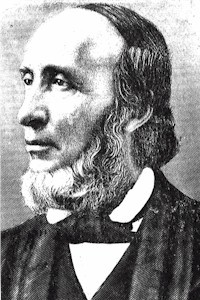
Wayland is a town in Middlesex County, Massachusetts, United States. The town was founded in 1638, and incorporated in 1780 and was originally part of neighboring Sudbury. At the 2020 United States census, the population was 13,943.
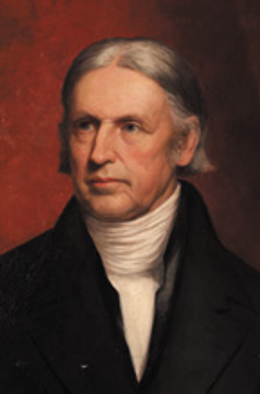
Hosea Ballou D.D. was an American Universalist clergyman and theological writer.

William Ellery Channing was the foremost Unitarian preacher in the United States in the early nineteenth century and, along with Andrews Norton (1786–1853), one of Unitarianism's leading theologians. Channing was known for his articulate and impassioned sermons and public speeches, and as a prominent thinker in the liberal theology of the day. His religion and thought were among the chief influences on the New England Transcendentalists although he never countenanced their views, which he saw as extreme. His espousal of the developing philosophy and theology of Unitarianism was displayed especially in his "Baltimore Sermon" of May 5, 1819, given at the ordination of the theologian and educator Jared Sparks (1789–1866) as the first minister of the newly organized First Independent Church of Baltimore.

Theodore Parker was an American transcendentalist and reforming minister of the Unitarian church. A reformer and abolitionist, his words and popular quotations would later inspire speeches by Abraham Lincoln and Martin Luther King Jr.
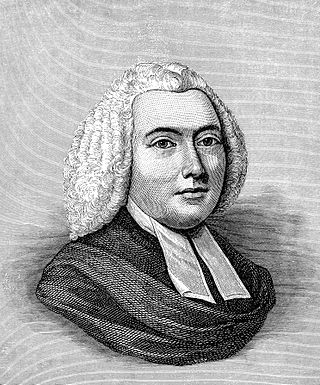
Jonathan Mayhew was a noted American Congregational minister at Old West Church, Boston, Massachusetts.
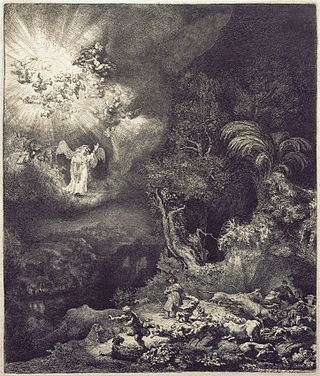
"It Came Upon the Midnight Clear", sometimes rendered as "It Came Upon a Midnight Clear", is an 1849 poem and Christmas carol written by Edmund Sears, pastor of the Unitarian Church in Wayland, Massachusetts. In 1850, Sears' lyrics were set to "Carol", a tune written for the poem the same year at his request, by Richard Storrs Willis. This pairing remains the most popular in the United States, while in Commonwealth countries, the lyrics are set to "Noel", a later adaptation by Arthur Sullivan from an English melody.
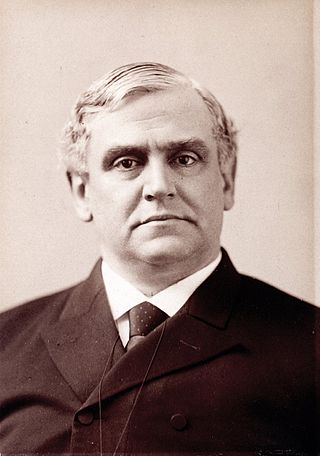
Phillips Brooks was an American Episcopal clergyman and author, long the Rector of Boston's Trinity Church and briefly Bishop of Massachusetts. He wrote the lyrics of the Christmas hymn, "O Little Town of Bethlehem".

James Freeman Clarke was an American minister, theologian and author.
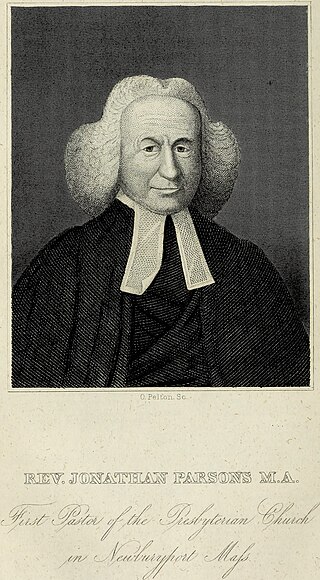
Jonathan Parsons was a Christian New England clergyman during the late colonial period and a supporter of the American Revolution. Born in West Springfield, Massachusetts, he was the youngest son of Ebenezer (Deacon) Parsons (1668-1752) and Margaret Marshfield of Springfield. He was intended for an artisan career, but the Rev. Jonathan Edwards, then a tutor at Yale, persuaded young Parsons to prepare for college.

The Universalist Church of America (UCA) was originally a Christian Universalist religious denomination in the United States. Known from 1866 as the Universalist General Convention, the name was changed to the Universalist Church of America in 1942. In 1961, it consolidated with the American Unitarian Association to form the Unitarian Universalist Association.
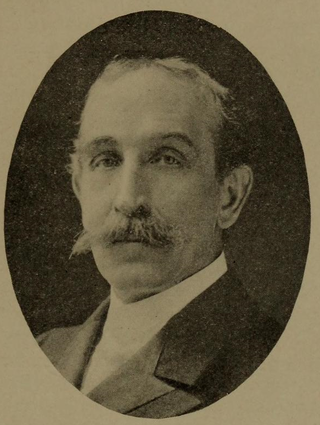
Minot Judson Savage was an American Unitarian minister, psychical researcher and author.
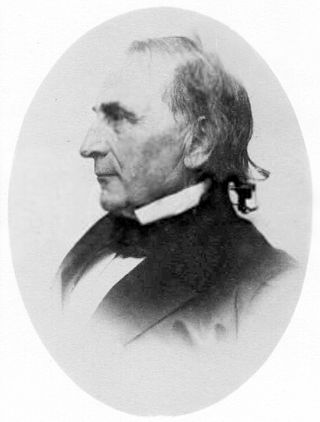
James Walker was a Unitarian minister, professor, and President of Harvard College from February 10, 1853, to January 26, 1860.
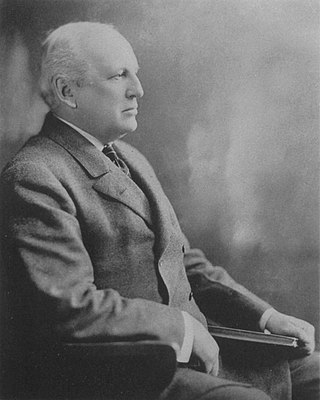
Samuel Atkins Eliot II was an American Unitarian minister. In 1898 the American Unitarian Association elected him secretary but in 1900 the position was redesignated as president and Eliot served in that office from inception to 1927, significantly expanding the association's activities and consolidating denominational power in its administration.
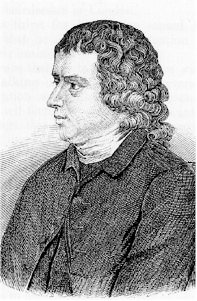
Robert Robinson was an English Dissenter, influential Baptist and scholar who made a lifelong study of the antiquity and history of Christian Baptism. He was also author of the hymns "Come Thou Fount of Every Blessing" and "Mighty God, while angels bless Thee", the former of which he wrote at age 22 after converting to Methodism. The latter was later set to music by Dr John Randall, Music Professor at Cambridge University.

John Gorham Palfrey was an American clergyman and historian who served as a U.S. Representative from Massachusetts. A Unitarian minister, he played a leading role in the early history of Harvard Divinity School, and he later became involved in politics as a State Representative and U.S. Congressman.
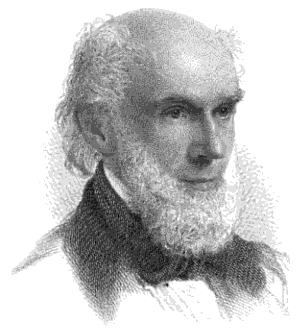
Ezra Stiles Gannett was a Unitarian minister in Boston, Massachusetts.
Samuel Johnson was a United States clergyman and author.

Congregationalism in the United States consists of Protestant churches in the Reformed tradition that have a congregational form of church government and trace their origins mainly to Puritan settlers of colonial New England. Congregational churches in other parts of the world are often related to these in the United States due to American missionary activities.

Cyrus Augustus Bartol was a Unitarian pastor, author, and hymnist.
Eliza Scudder (1821–1896) was a 19th-century American hymnwriter. Among her productions are several notable hymns including, "The Love of God", written in 1852; "Truth", which begins with the line, "Thou long disowned, reviled, oppressed"; "Lines for Music", which begins with "As the lost who vainly wander"; and the lyric poem, "The Vesper Hymn", written in 1874. Scudder was undoubtedly influenced by her uncle, Edmund Hamilton Sears, the author of "It Came Upon the Midnight Clear".
